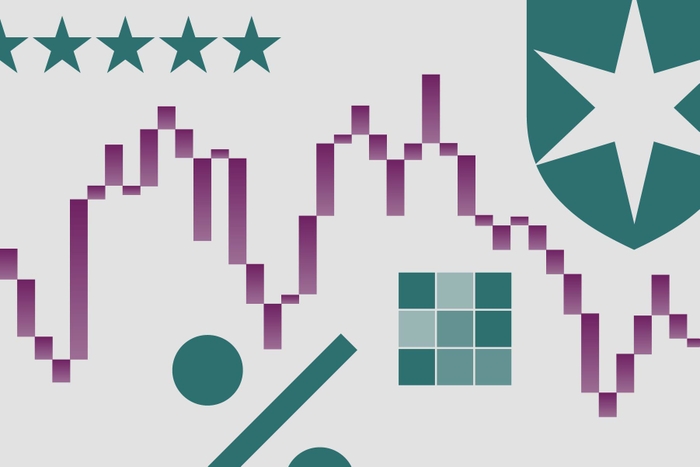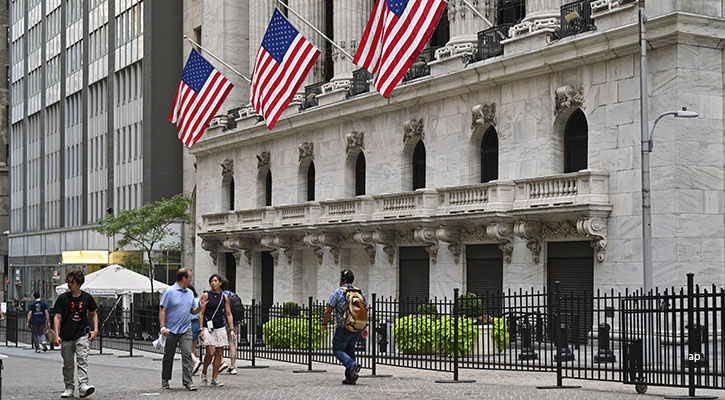Dr. Michael J. Hasenstab shed lights on topics such as their team structure, how various risks have affected their investment decisions, and the major portfolio changes over last year.

Category Winner: Best Global Bond Fund - Templeton Global Bond A Acc $
Key Stats
Inception Date: 2006 Apr 28
Morningstar Rating (as of 2015-04-30):![]()
Total Net Assets (Mil, as of 2015-04-30): 34,308.88 USD
Manager: Michael J. Hasenstab, Sonal Desai
Manager Start Date: 2002 Jun 01; 2011 Jan 01
M: Morningstar F: Dr. Michael J. Hasenstab
M: Could you highlight any major changes you made to the portfolio over the course of 2014? Were there any particular holding that drove the fund’s performance for the year?
F: We have been actively positioned in three main areas a) short portfolio duration; b) long US dollar against short euro and long US dollar against short Japanese yen; and c) select local-currencies and local-bond exposures in specific emerging markets. Yields across the developed economies remained historically low in 2014, importantly in the G3. By contrast, we continued to see higher yields and relatively attractive currency fundamentals in various emerging market economies. We increased our local-currency exposure in select emerging markets that we believe have good underlying fundamentals such as Mexico. During 2014 our short duration positioning restrained absolute performance as yields generally shifted lower across developed markets. However, select duration exposures in our strategies contributed to return, notably from select emerging market positions.
Additionally, we increased our net-negative positions in the euro and the Japanese yen. These positions generated positive returns as the euro and yen continued to depreciate over the course of the year. Both the Bank of Japan (BOJ) and the European Central Bank (ECB) maintained their commitments to highly accommodative monetary policies during the year. The BOJ expanded its quantitative easing program in October to an annual level of 80 trillion yen and the European Central Bank reinforced its commitment to expand the size of its balance sheet. Looking forward, we expect continued quantitative easing from both central banks for quite some time, which will likely lead to further depreciation of each of the respective currencies. Thus, we continue to maintain net-negative positions in the euro and the Japanese yen in 2015.
M: What is your economic outlook for 2015 specific to the markets you cover and how are you positioned to take advantage of opportunities and/or mitigate potential risks?
F: We believe global financial markets should continue to benefit from growth in the United States, economic stabilization in China, lower oil prices, and the abundance of global liquidity from the Bank of Japan (BOJ) and the European Central Bank (ECB). In our view, the market has misjudged the underlying forces behind the recent declines in oil prices, which we consider to have been driven by supply dynamics rather than a loss of demand. We believe that the global economy benefits from lower oil prices and that most observers have been too pessimistic.
The core of our current strategy is to position our portfolios to navigate a rising-rate environment. Thus, we have continued to maintain short portfolio duration while aiming at a negative correlation with U.S. Treasury returns. We have increased our negative US duration exposure and we continue to actively seek opportunities that can offer positive real yields without taking undue interest-rate risk. We favor countries that have solid underlying fundamentals with policymakers who have stayed ahead of the curve regarding fiscal, monetary and financial policy. We augment this positioning with select credit opportunities in emerging markets and with a number of currency strategies.
M: Can you comment on the macro risks facing the global economy, including potential US rate hikes, QE programs in the Eurozone and Japan, and the growth headwinds facing the emerging world? How do these risks affect your investment decisions?
F: The era of historically low interest-rates in the US may be coming to an end later this year, and we have actively positioned our portfolios to both gain from rising US Treasury yields and to hedge against global risks in the developed and emerging bond markets.
In Europe, low inflation has persisted while economic data have continued to disappoint. However, we believe financial markets have been too pessimistic on near-term growth. We expect the eurozone to benefit from QE by the ECB, strengthening US consumer demand, and lower oil prices. We anticipate QE for quite some time in both the euro area and Japan, which should further depreciate the euro and yen. In our view, Japan will need to stay on its current path of substantial asset purchasing for quite some time.
In emerging markets, we continue to expect differentiation among specific countries; some have healthy current account and fiscal balances with strong export-driven economies, while others struggle with deficits and economic imbalances. We believe that investors should avoid viewing emerging markets as an asset class as a whole but instead need to selectively distinguish between variant individual economies. In our assessment, economies that have healthier balances and stronger growth prospects should experience currency appreciation over the long term, while those with imbalances are more likely to face currency weakness and economic strains. In particular, we have a positive view of the long term fundamentals of both Korea and Mexico.
M: How is your investment team organized? Have there been or do you anticipate any changes to the investment team or structure over the course of the year? Do you anticipate adding to the team in the near future?
F: The Templeton Global Macro team is composed of 18 investment professionals, with 12 research analysts, 7 of whom have PhDs. They conduct fundamental country macro research at a regional and global level. The team is headed by Dr. Michael Hasenstab, EVP and Chief Investment Officer. Dr. Sonal Desai is the Director of Research in addition to being a Portfolio Manager on the strategies. We do not anticipate any significant changes to the investment team in 2015.
M: Can you highlight any areas where you feel that the investment team or the investment process can be improved upon?
F: We are confident in our investment process and do not currently have any identified areas that require adjustment. We believe our truly-unconstrained investment strategy empowers us to actively manage risks more effectively than a strategy that is constrained to the characteristics and parameters of a benchmark. Index-managing compels a strategy to adopt the same market risks of its benchmark-index, regardless of whether the management team believes those risk-reward relationships are appropriate. We believe our unconstrained approach is more effective at directly responding to current market risks and actively managing for them. We also believe our unconstrained approach allows us to more fully deploy the capabilities of our fundamental research across the full breadth of the global fixed income markets.
Click here to see other winner features.

















